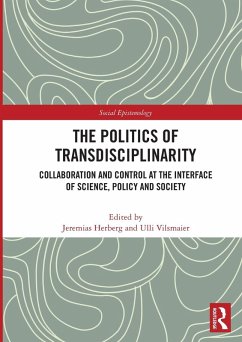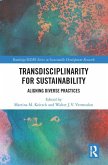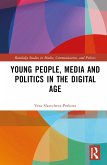This book discusses collaborative research as both a product of social and epistemic control, and as a process of dealing with it. It offers fresh multi-disciplinary perspectives on old questions that are gaining new urgency with the rise of participatory, transdisciplinary and transformative research.
The volume addresses the complexity of collaborative research at the interface of science, policy and society and sheds light on a common dilemma: researchers and their collaborators tackling issues that require political and knowledge-based control. At the same time, collaborative research that involves diverse publics is difficult to predict or regulate. By examining the interplay of power and knowledge in these collaborations, the book offers insights into how researchers navigate the dilemma of social and epistemic control. This exploration is crucial for understanding the politics of transdisciplinarity. Featuring contributions from various fields including transdisciplinary sustainability studies, science and technology studies, policy analysis, participatory research and more, the book discusses different methodologies, practices, theories, and adaptations in response to the control dilemmas inherent in collaborative research to offer a deeper understanding of the nuanced relationship between power and knowledge within collaborative research.
The Politics of Transdisciplinarity will be a key resource for the reflexive researcher working with collaborative approaches at the interface of science, policy and society. It was originally published as a special issue of Social Epistemology.
The volume addresses the complexity of collaborative research at the interface of science, policy and society and sheds light on a common dilemma: researchers and their collaborators tackling issues that require political and knowledge-based control. At the same time, collaborative research that involves diverse publics is difficult to predict or regulate. By examining the interplay of power and knowledge in these collaborations, the book offers insights into how researchers navigate the dilemma of social and epistemic control. This exploration is crucial for understanding the politics of transdisciplinarity. Featuring contributions from various fields including transdisciplinary sustainability studies, science and technology studies, policy analysis, participatory research and more, the book discusses different methodologies, practices, theories, and adaptations in response to the control dilemmas inherent in collaborative research to offer a deeper understanding of the nuanced relationship between power and knowledge within collaborative research.
The Politics of Transdisciplinarity will be a key resource for the reflexive researcher working with collaborative approaches at the interface of science, policy and society. It was originally published as a special issue of Social Epistemology.








